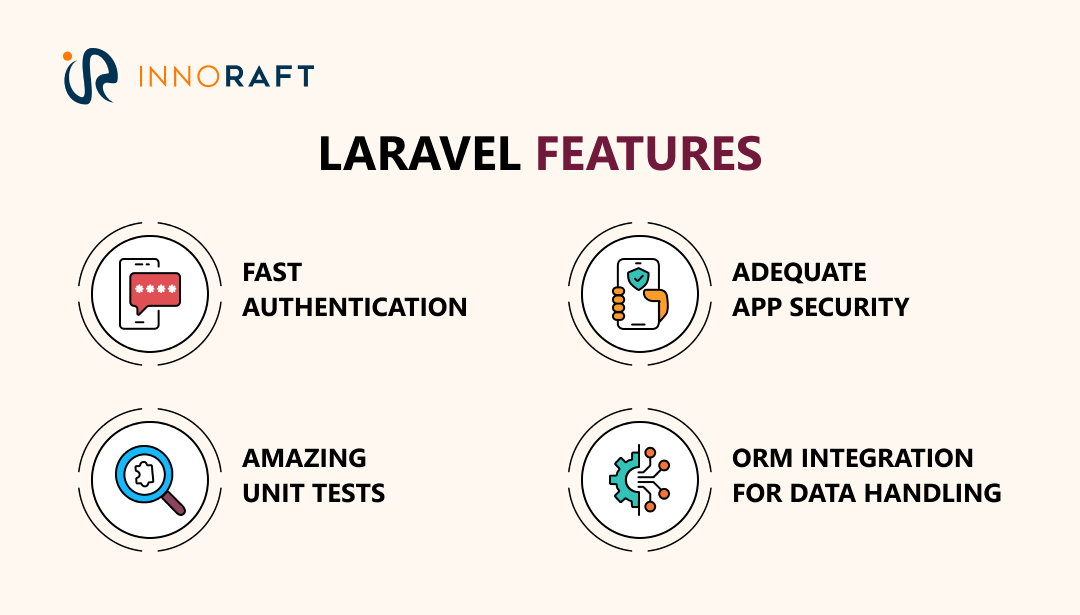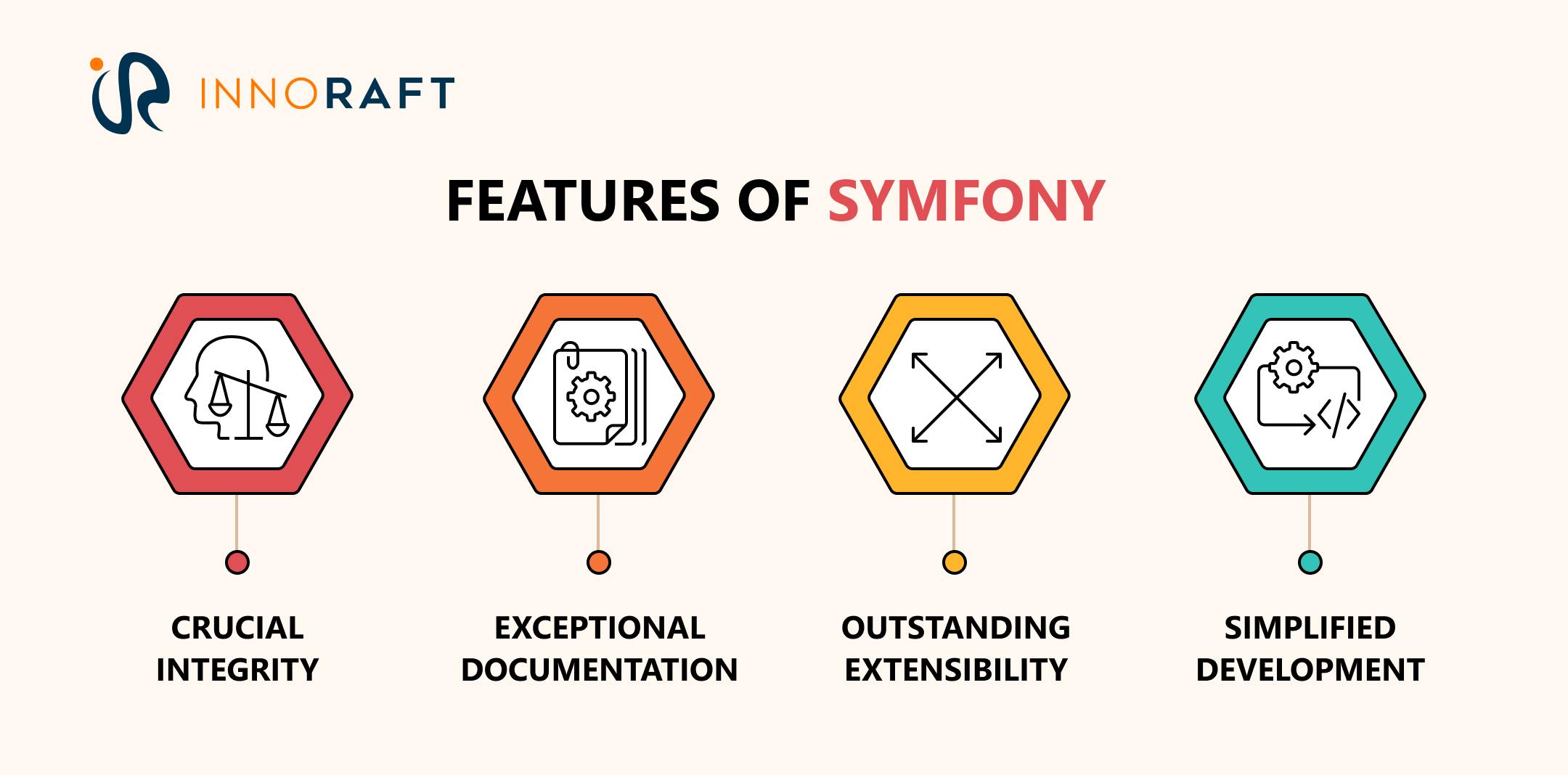Planning to create a website for your startup or business? In today's digital-first world, establishing a strong online presence is crucial for connecting with your customers and expanding globally. But once you decide to develop a website, the next big step is choosing a PHP framework—a decision that can significantly impact your web app's success. PHP offers a variety of frameworks, but the battle often boils down to Laravel vs Symfony. These two have long been the top contenders in the PHP ecosystem, each with its own strengths, architecture, and loyal developer base. Improving performance and efficiency in web development primarily involves optimizing code and streamlining processes, both of which play essential roles.
Laravel: What is it?
The prevalent open-source PHP framework Laravel is recognized for its sophisticated syntax, user-friendly design, and robust support for the Model-View-Controller (MVC) architecture. Developers widely use Laravel, which simplifies the web development process by providing understandable, clean code and a minimal configuration approach. By reusing elements from various frameworks, Laravel facilitates the rapid development of web applications. Development is more structured and manageable because it can distinguish between presentation code and business logic.
One of the strongest aspects of Laravel development is its modular packaging architecture, along with the conjunctive use of Composer, a PHP dependency management system. Besides providing a strong workflow that adheres to best practices for building modern web applications, Laravel offers numerous functions that simplify database migration, relational data modeling, and application deployment.
Laravel Features
Let's explore some of the best Laravel features that facilitate smooth Laravel web development.

Fast Authentication
One of the most crucial aspects of creating mobile apps is facilitating quick and simple authentication, which is made possible by Laravel development. Software developers need to set up controllers and models to ensure the smooth operation of their apps, thanks to Laravel's integration of a native authentication mechanism.
Adequate App Security
Every Laravel web development project must have reliable application security. When working on secure web applications, developers must adhere to various approaches. Additionally, Laravel implements essential, effective security with the Bcrypt Hashing Algorithm.
Amazing Unit Tests
Laravel is the best when it comes to unit testing. This developer-friendly PHP framework enables end users to run multiple tests, allowing them to rapidly identify vulnerabilities. Choosing Laravel development contributes to website performance assessments while saving time and money.
ORM Integration for Data Handling
Software developers can query the database table using a simple PHP syntax by leveraging Laravel package development's built-in ORM (Object Relational Mapping). This eliminates the need for developers to create SQL code. Database tables and Laravel developers may integrate seamlessly owing to the Laravel workflow.
Advantages of Laravel
Below are some of the key benefits of Laravel:
- Exceptional Documentation: Laravel is renowned for being a developer-friendly framework due to its comprehensive documentation. Different versions of Laravel come with complete documentation, including detailed explanations of methodologies, classes, and coding styles.
- Quick Accessibility of Packages and Assets: When developing Laravel packages, you may leverage Bower and NPM (Node Package Manager) packages by linking the framework to Gulp and Elixir. It is helpful for modifying assets and resources and helps clean out dependencies when used in conjunction with Composer. It makes it the most reliable source of the package in the PHP era.
- Email Service Incorporation: Web applications must connect with their users and keep them up to date on the recent offers, services, and costs. Instead of using the SwiftMailer library, the Laravel framework uses an API. It also includes the necessary operators to enable PHP's "mail" functionality.
- Active Community Support: Another substantial benefit of Laravel is its thriving community, which continues to grow on a regular basis. The community consists of developers, supporters, and professionals who actively contribute to its growth.
Let us now proceed to the next stage of our article and explore various aspects of the Symfony framework.
Why wait? Let us begin!
Symfony: What is it?
Symfony provides reusable PHP components for fast web development. It is easily customizable to meet the individual demands of developers by deploying a specific Symfony workflow and module. It can also be configured using the MVC (Model-View-Controller) model to maximize the use of the Symfony PHP Framework.
Symfony provides free bootstrap elements, high-end configurations, and framework components, making developers' work more accessible. The Symfony framework is adaptable enough to give solutions for a variety of project types. As a result, it is generally regarded and trusted as a scalable platform with quick response times and low mistake rates.
Features of Symfony
Below are some of the Symfony features that aid with effective Symfony development:

Crucial Integrity
Relatively to the rest of the frameworks, Symfony is widely regarded as the most reliable, and that is precisely why most web developers use it to build high-performance applications.
Exceptional Documentation
Inadequate documentation is a big issue that developers confront when working with specific PHP frameworks. Yet, the Symfony framework's documentation surpasses that of most other frameworks. Symfony's workflow is developer-friendly and well-presented.
Outstanding Extensibility
When utilizing the Symfony PHP framework, developers can reuse bundles, eliminating the need to update or modify the framework. Instead, they need to configure the bundle to meet the project's specific demands.
Simplified Development
Using the Symfony framework, developers do not need to focus on tiny operations and functions. It is suited for development projects of all sizes. And how? Because it consists of Bundle-based architecture.
Advantages of Symfony
Here are some of the key benefits of using Symfony for your next project:
- Quick Application Development: One of the fundamental benefits of using the Symfony framework is its rapidity. Symfony's primary goal was to enable PHP developers to build applications quickly, which was made feasible by its extensive use of reusable components and modular frameworks. Multiple frameworks may be great for application development, but using the Symfony PHP framework already allows you to innovate.
- Interconnection between Systems: Symfony processes support consistency by embracing current PHPUnit and naming conventions of classes. It enables web developers to implement specialized software development components, including management, dependency injection, and translation management.
- Cache Optimization: Since the MySQL database handles every read query executed by the Symfony framework, the framework employs a cache management system. In MySQL, all statements are reserved, rendering them simple to implement.
- Reusable Components Usage: The Symfony PHP framework is built on the MVC framework. The framework is based on the Reusable Components principle and is recognized to be the most modular. As software developers utilize reusable components, Symfony development proceeds as planned, which delights business owners due to its short Time to Market.
Which is the Best Option for Software Development Project?
The appropriate decision between Laravel vs Symfony is determined by your project's requirements, team skills, and development schedule. Consider this while selecting whether to use Laravel or Symfony for web development. Laravel is designed for rapid application development, it is a great choice for those subject to time constraints. Whereas Symfony is focused on long term support and building enterprise-level applications.
If your application will play a critical role in your organization's success, Symfony offers a more stable and scalable foundation. However, it's easier to hire Laravel developers, so unless you're ready to train your team or risk delays in staffing, Laravel may be the more practical choice.
Conclusion
Laravel and Symfony are both robust PHP frameworks that encapsulate powerful capabilities for professional web development. The ideal framework for web development, whether Laravel or Symfony, is chosen by the project's needs, complexity, and intended implications. If you follow best practices, you can switch between frameworks in the future, so choose the framework that works best for your team!
